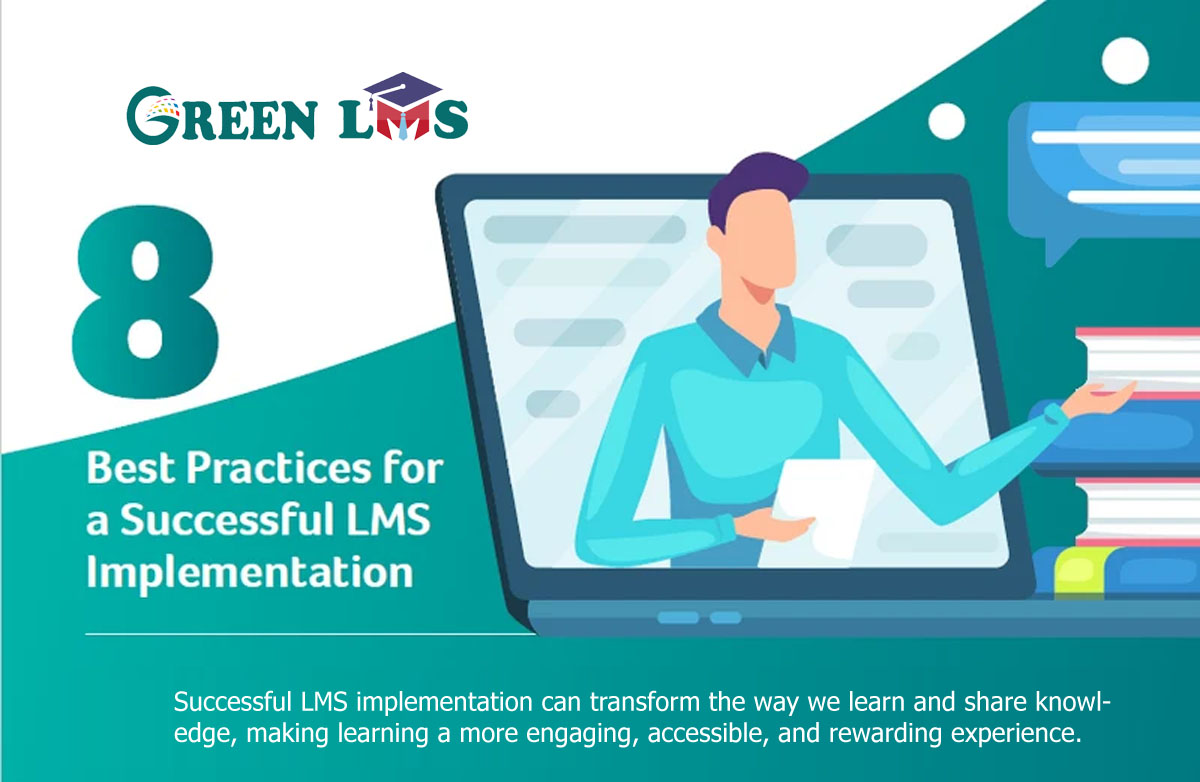Introduction
As we plunge headfirst into the digital age, the Learning Management System (LMS) becomes a pivotal part of our educational landscape. An LMS can break down barriers, streamline workflows, and open the door to limitless learning. However, the road to an effective LMS implementation can be bumpy if not navigated with care. Fret not, for we bring you eight indispensable tips for LMS implementation to ease your journey.
The Importance of a Learning Management System
Revolutionising the Learning Environment
The advent of LMS has significantly redefined how knowledge is shared and consumed. It has brought about a seismic shift from traditional chalk-and-talk teaching to interactive and engaging e-learning. But how does an LMS pull this off?
Fostering Remote Learning
LMS offers a robust platform for remote learning, a necessity in our increasingly globalised and digitalised world. With the pandemic turning the world topsy-turvy, LMS implementation ensures continuity in learning, eliminating geographical barriers.
Eight Tips for LMS Implementation
Clear Identification of Goals
Before embarking on the journey of LMS implementation, it’s crucial to map out your goals. What do you wish to achieve through the LMS? Is it employee training, academic learning, or knowledge management?
Choosing the Right LMS
With a plethora of LMS options in the market, picking the right one can feel like looking for a needle in a haystack. Remember, one size doesn’t fit all! The LMS should cater to your specific needs, align with your goals, and be user-friendly.
Engaging Stakeholders Early
Implementing an LMS is not a solitary endeavour. It involves educators, learners, administrators, and often parents. Engage stakeholders early on to encourage buy-in and ensure a smoother transition.
Data Migration Strategy
Data migration is often a stumbling block in LMS implementation. Therefore, a clear data migration strategy that addresses potential roadblocks and ensures the security of sensitive data is a must.
A Comprehensive Training Programme
An LMS is only as effective as its users. A comprehensive training programme that helps users navigate the LMS and leverage its capabilities enhances user experience and promotes engagement.
Continuous Support
Once the LMS is up and running, continuous support is essential to resolve technical glitches, address queries, and collect feedback for system improvement.
Review and Evaluation
Finally, regularly review and evaluate the LMS’s effectiveness. Are your goals being met? Is there room for improvement? This can help finetune the LMS for optimal performance.
Scalability
Ensure the LMS you choose can scale up as your organisation grows. It should be flexible enough to accommodate increasing user numbers, additional courses, and expanded functionalities.
Common Challenges in LMS Implementation
Resistance to Change
Like any new system implementation, LMS can face resistance from users accustomed to traditional learning methods. Overcoming this hurdle requires patience, persistence, and plenty of communication.
Technical Glitches
Nothing throws a spanner in the works like unexpected technical problems. Having a dedicated technical support team on standby can help nip these issues in the bud.
How to Measure the Success of Your LMS Implementation
Learner Engagement
One of the primary indicators of a successful LMS implementation is learner engagement. Are the learners actively participating in the courses? Are they completing the courses on time?
Feedback and Reviews
Feedback and reviews from users offer valuable insights into the LMS’s strengths and weaknesses. Positive feedback is a strong indicator of successful implementation, while constructive criticism paves the way for improvement.
Frequently Asked Questions
What is LMS Implementation?
LMS implementation involves integrating a Learning Management System into your educational or corporate training process. It includes choosing the right LMS, setting up, customising, and launching the platform for users.
Why is LMS Implementation Important?
LMS implementation is key to transitioning from traditional learning methods to a flexible, interactive, and user-friendly e-learning approach. It enables remote learning, enhances learner engagement, and streamlines the learning process.
How Long Does LMS Implementation Take?
The timeframe for LMS implementation varies depending on the complexity of the system, the size of the organisation, and the amount of data to be migrated. It can range from a few weeks to several months.
What Are Some Tips for a Successful LMS Implementation?
Some tips include clear goal setting, choosing the right LMS, engaging stakeholders early, having a data migration strategy, providing training and continuous support, and regularly reviewing and evaluating the LMS.
How Do I Overcome Challenges in LMS Implementation?
Overcoming challenges in LMS implementation involves effective communication, user training, technical support, patience, and the willingness to adapt and improve based on user feedback.
How Do I Measure the Success of an LMS Implementation?
Measuring success involves monitoring learner engagement, collecting and analysing user feedback, and comparing the performance of the LMS against predefined goals.
Conclusion
Successful LMS implementation can transform the way we learn and share knowledge, making learning a more engaging, accessible, and rewarding experience. Armed with these eight tips, you’re ready to embark on your journey towards an effective Learning Management System. Remember, the road to success is always under construction. Keep learning, keep improving!
Green LMS is an AI-powered, mobile-first, SAAS learning management system. For small, medium or large enterprises looking for a feature-packed solution for an enriched learning experience.
As an online course entrepreneur, having a learning management system to help you showcase your brand is very important. The Green LMS platform for entrepreneurs allows you to create, market, and sell online courses from one place. It features a customizable visitor portal, online course landing pages, a public blog, and more, so you can personalize your website and tell a compelling brand story.
Sign up for a free 14-day trial and see for yourself.


